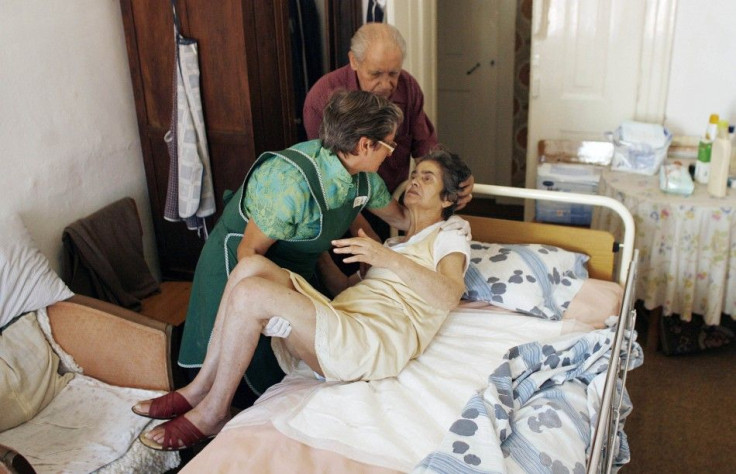Can Alzheimer's Gene Increase Risk Of Severe COVID-19?

KEY POINTS
- Individuals with APOE4 gene are more likely to develop Alzheimer’s disease
- Study: Britons with 2 copies of this gene had a higher risk of developing COVID-19
- COVID-19 risk factors might be more than age and comorbidities
British people with two copies of a particular gene which is a biomarker of Alzheimer's disease are found to be at a markedly higher risk of COVID-19 finds a new analysis of the U.K. Biobank data.
The APOE4 allele was found to be influencing people to develop COVID-19 twice that of the gene APOE3, reported the researchers at the University of Exeter in England.
Most individuals have two copies of APOE3 alleles which is neutral for Alzheimer's disease risk. And among those with European ancestries, people who had two copies of APOE4 were almost 15 times more likely to develop Alzheimer's.
"The finding is exciting as it takes us beyond just focusing on age and comorbidities as risk factors for severe COVID-19. Dementia diagnoses in the U.K. Biobank were updated only to 2017, and information about the nursing home residence or early dementia stages like mild cognitive impairment was not available,” the lead researcher David Melzer, MBBCh, Ph.D. told MedPage Today.
But the mechanism for the biological connection between the Alzheimer's disease-causing gene and susceptibility to COVID-19 isn't clearly understood by experts who weren’t a part of the research.
"To claim APOE4 puts patients at higher risk for acquiring COVID-19, one would have to implicate that somehow it increases exposure or increases the rate of infection in the respiratory or gastrointestinal systems. That's what makes me suspect the connection has to be related to patient care practices and increased exposure rather than a biological phenomenon," Avindra Nath, MD, senior investigator of nervous systems infections at the National Institute of Neurological Disorders and Stroke in Bethesda, Maryland told MedPage Today.
There is a possibility that individuals with the APOE4 gene are more likely to have dementia. But they might still be cognitively impaired even if they don’t have dementia. Many of them might be in nursing homes or might need help in managing everyday activities. This would bring them in close contact with multiple healthcare professionals.
The Study:
The researchers evaluated positive tests for COVID-19 from March 16 to April 26. At that time, coronavirus testing was largely restricted to patients who exhibited clinical signs of infection. They then mapped their test results against genotype information in the U.K. Biobank
The findings revealed that 401 people with APOE3 gene and 37 people with APOE4 tested positive for COVID-19. The risk of COVID-19 positivity was still found to be high even when they excluded individuals with underlying health conditions including coronary heart disease, hypertension, and type 2 diabetes.
© Copyright IBTimes 2025. All rights reserved.






















